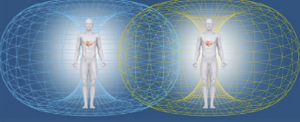It can be difficult to find motivation and inspiration at times. I have days when I lack the will to do. When feeling unmotivated and uninspired, we lack interest and enthusiasm in things, people and life. It can dampen our moods without a reason or motive. It comes with an unwillingness to do anything, accompanied by thoughts such as, “Don’t want to do anything”, or, “Don’t feel like doing anything”, or, “Cannot be bothered”.
Psychologically, what we think affects how we feel and act. What we feel affects our thoughts and what we do. What we do affect how we think and what we feel. We can easily be identified with our thoughts, our feelings and our behaviours. But, in reality, we are simultaneously influenced by all three elements, the body, feelings, and mind.
When one lacking motivation and loses interest, it may be because your aspirations and goals are lacking, too vague, too open or unachievable. When in this state, it can be a precursor to pessimism, leading to negative outlooks on life, people, and things. Negative views can eventually spiral into other issues and psychological disorders. Eventually, psychological conditions can lead to physical manifestation within the body somatically. It can be hard to believe for some people who cannot comprehend how something intangible can become symptomatic. Regardless of whether you believe it or not, your mental and psychological disorders are problematic and unhealthy which can lead to physical health problems.
To maintain a healthy lifestyle, we need to take care of the body, feelings and mind in a holistic concept. An inclusive perspective means leading a healthy and balanced lifestyle. We can begin instantly by appreciating the littlest things that bring us joy and happiness. When we can appreciate the simple things in the mundane, our hearts will sing.
When the heart sings, there is an immense joyous feeling. This feeling brings us closer to spirituality and enlightenment. It is a peaceful experience that comes with inner calmness and connectivity with something more than ourselves. The feelings are akin to moments of bliss and euphoria but without any interference or interventions of any substances.
Here are some helpful tips on how appreciating the little things can instantly lift your moods.
Find the little thing to appreciate is not something that can be rushed or obsessed over. It is not something that leads to compulsion. Stop what you are doing and let it go when you feel you are negatively reacting to the process.
- Begin with the simple thing.
Begin with the simplest thing. This can simply be appreciating what you have or who you are with. Appreciate what we have is literally that. Start with things that are closest to you. For example, I appreciate the clothes on my back. Appreciate the clothes in my cupboard and the fact that I was able to afford the beautiful things that I have. In the process, you will need to be grounded and embodied in appreciative and thankful thoughts. It is an inner recognition that you want to elicit. Although you are using the external things or stimuli to stimulate.
It is a balance of appreciation and at the same time, know that you are not too attached or unhealthy attached to the items.
Deep appreciation is an inner thankful feeling in which you value its qualities and respect. In this example, you may value your clothes, but the symbolic nature of the process is what you want to tap into. You might appreciate your house and having a roof over your head. You might appreciate your job and be thankful to have employment. You might appreciate the food you are eating, your health, your abilities to learn and grow etc.
Have ago and think about what else you appreciate.
- Begin with acts of kindness to the people closest to you
 The people closest to you mean individuals nearest to you, as this may not be your immediate family. The people we choose to have around us impact our being. You might have lots of family members but may not live close to them. You might live closer to friends and work colleagues. The people around us influence our lives. Begin by appreciating those around you, that includes your neighbours and the community in which you live. After all, a part of you knows why you have chosen to live where you are. Start appreciating those people that are closest to you.
The people closest to you mean individuals nearest to you, as this may not be your immediate family. The people we choose to have around us impact our being. You might have lots of family members but may not live close to them. You might live closer to friends and work colleagues. The people around us influence our lives. Begin by appreciating those around you, that includes your neighbours and the community in which you live. After all, a part of you knows why you have chosen to live where you are. Start appreciating those people that are closest to you.
For example, I am not necessarily a friend to the neighbours, but there is a silent appreciation. I am amiable and pleasant to have them as neighbours. I treat them as I would like to be treated. I am warm and friendly, even if I may not experience them the same way. Even if I experienced them with some hostility and challenges, I remained amiable and pleasant.
The Law of Attractions dictates that what we give out will be returned to us. If we display amiable, warm and friendly behaviours, these qualities will be payback. Act of kindness is easier than you think, and it should not be an effort or a chore. If you struggle with this, check your thoughts in the psyche, observe feelings in your heart, and notice what you believe. You may be unconsciously broadcasting negative messages, and the Law of Attraction will manifest what you hold true.
- Appreciate nature
 Appreciate the outdoor and nature. Enjoy the freshness and colourful nature of the natural world and be one with nature. Nature therapy is healing and beneficial to our health and wellbeing. When I say being in nature, I mean in the woods, the field, the mountain, a lake or river etc. Nature consists of plants, animals, landscape and all the features that makeup from products of the Earth where life exists.
Appreciate the outdoor and nature. Enjoy the freshness and colourful nature of the natural world and be one with nature. Nature therapy is healing and beneficial to our health and wellbeing. When I say being in nature, I mean in the woods, the field, the mountain, a lake or river etc. Nature consists of plants, animals, landscape and all the features that makeup from products of the Earth where life exists.
There are many positive benefits to the outdoor and nature. It gives us the opportunity to connect with our environment and realise that we are supported and provided for. Nature support life, and we are a part of something more than ourselves.
In the awareness of being more than ourselves, we will come to have admiration for the beauty of our world. We can develop respect and cherish the cycle of life in nature and in ourselves. As you cherish the beauty of the outer world, you will begin to feel love for yourself.
But, you will need to really be grounded and be embodied as you experience your environment. You will need to immerse yourself in your surroundings. Take in the beauty of your nearby places and find what is wonderful. It might be the soft, mushy ground that you’re walking on. It might be the feel of the grass beneath your hands or feet. It might be the rough contour of the tree which you are leaning against, etc.
- Smile and be joyful
 Fake it until you make it. It might seem like an effort and difficult to foster a smile. But, it is effortless. Curl your lips together and grin. Turn that frown upside down! Smiling and positioning our mouth into the smile helps to improve our moods as the body is ‘tricked’ into releasing cortisol and endorphins. We all know all the many benefits of these two magical chemicals in the body. But, did you know that it is also catching?
Fake it until you make it. It might seem like an effort and difficult to foster a smile. But, it is effortless. Curl your lips together and grin. Turn that frown upside down! Smiling and positioning our mouth into the smile helps to improve our moods as the body is ‘tricked’ into releasing cortisol and endorphins. We all know all the many benefits of these two magical chemicals in the body. But, did you know that it is also catching?
Fake it until you make it.
Smiling is fantastic and wonderful. It is healthy for the body and mind in reducing our anxieties and stress. It helps lower the heart rate, blood pressure and boost your immunity. A smile a day keeps the misery at bay.
When you smile, you will naturally be joyful; thus, it is effortless. Plus, it will also instantly brighten up someone else’s day when you smile at someone. A smile begins with you. Surely that must bring more smiles to your face.
A smile a day keeps the misery at bay.
Do you find this blog helpful? If you like this post, I love to hear from you on my Twitter Page.




 As a psycho-spiritual therapist, I believe that the physical body has two ‘minds’; the cognitive-mind and the heart-mind. Therein, the brain is the cognitive-mind, and the heart is the heart-mind. It might help if you think of the brain as the all-knowing ‘supercomputer’. Memories, experiences, and programmings are stored. Thus, the heart is the ‘operator’, the user, the decision-maker. Imagine making your decisions from the heart. Henceforth, I want to discuss the concept of heart-mind further because I believe that this is the primary and the brain is secondary.
As a psycho-spiritual therapist, I believe that the physical body has two ‘minds’; the cognitive-mind and the heart-mind. Therein, the brain is the cognitive-mind, and the heart is the heart-mind. It might help if you think of the brain as the all-knowing ‘supercomputer’. Memories, experiences, and programmings are stored. Thus, the heart is the ‘operator’, the user, the decision-maker. Imagine making your decisions from the heart. Henceforth, I want to discuss the concept of heart-mind further because I believe that this is the primary and the brain is secondary. The heart has an energy centre known as the
The heart has an energy centre known as the  If you use your mind to think about making a decision, it is safe to say that you are not as connected to your heart-mind. If you take time to ponder a decision or find it difficult to make up your mind, you are probably mind-identified. Decision-making from the heart-mind often comes from a ‘feeling’ or an intuition. The heart is our source of love, creativity and inspiration. Sometimes, decisions from the heart are illogical, baseless, spontaneous and impulsive.
If you use your mind to think about making a decision, it is safe to say that you are not as connected to your heart-mind. If you take time to ponder a decision or find it difficult to make up your mind, you are probably mind-identified. Decision-making from the heart-mind often comes from a ‘feeling’ or an intuition. The heart is our source of love, creativity and inspiration. Sometimes, decisions from the heart are illogical, baseless, spontaneous and impulsive. Place your hand on your heart and literally listens to the harmonious, rhythmic heart beating. It should beat in a gentle rhythm, the soft sounds of the tempo should be melodic and not like an offbeat syncopation. Listen to your gentle, beating heart and notice your senses. Do you feel any tingling, flood of warmth or goosebumps? These are the sensation of energy moving through your body, surging and filling you with good feelings. A loving feeling has the highest frequency, as mentioned in last month’s
Place your hand on your heart and literally listens to the harmonious, rhythmic heart beating. It should beat in a gentle rhythm, the soft sounds of the tempo should be melodic and not like an offbeat syncopation. Listen to your gentle, beating heart and notice your senses. Do you feel any tingling, flood of warmth or goosebumps? These are the sensation of energy moving through your body, surging and filling you with good feelings. A loving feeling has the highest frequency, as mentioned in last month’s  Speaking from the heart will inevitably help. It may seem awkward and strange at first, but you will become more comfortable with practice. Speaking from the heart is not about talking ‘mushy’, over-sentimental or pretentious, but preferably with genuineness and sincerely. Speaking with feeling is speaking from the heart. It is about speaking your truth.
Speaking from the heart will inevitably help. It may seem awkward and strange at first, but you will become more comfortable with practice. Speaking from the heart is not about talking ‘mushy’, over-sentimental or pretentious, but preferably with genuineness and sincerely. Speaking with feeling is speaking from the heart. It is about speaking your truth. When you speak to others, notice your language, the word you use and in what context. If you can relate to others from an adult to adult, not from an adult to a child or a parent, you are halfway to using the I/thou language. This concept simply means speaking to someone compassionately while taking responsibility for your feeling, words, and language. Here is an example of an I/though language:
When you speak to others, notice your language, the word you use and in what context. If you can relate to others from an adult to adult, not from an adult to a child or a parent, you are halfway to using the I/thou language. This concept simply means speaking to someone compassionately while taking responsibility for your feeling, words, and language. Here is an example of an I/though language: This is probably the most important tip. Believe it or not, but your thoughts are being heard by others. Even if you never speak it, what you think about consciously is being received ‘telepathically’ by the other person. We unconsciously broadcast the ‘unspoken’ conscious thoughts into our energetic field.
This is probably the most important tip. Believe it or not, but your thoughts are being heard by others. Even if you never speak it, what you think about consciously is being received ‘telepathically’ by the other person. We unconsciously broadcast the ‘unspoken’ conscious thoughts into our energetic field.